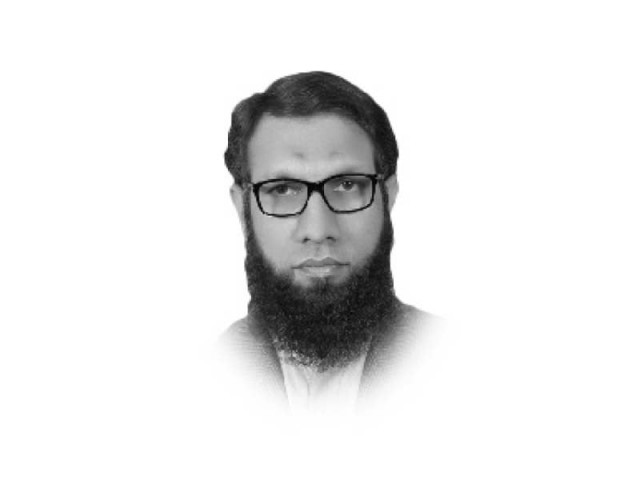Iqbal, China and the Muslim world
The post-WWI world order fundamentally altered the trajectory of Muslim societies

More than a century ago, Allama Iqbal issued a timeless call: for Muslims to rise above rhetoric and embrace real work grounded in knowledge, science and self-discipline. His poetry, pulsating with spiritual urgency and civilisational insight, did not glorify past empires but urged a reconstruction of thought and society. That call has never been more relevant than it is today.
The post-WWI world order fundamentally altered the trajectory of Muslim societies. With disintegration of the Ottoman Caliphate and the subsequent colonisation of the Arab heartlands, political agency of Muslims was replaced by fragmentation, subservience and ideological confusion. In the century that followed, many Muslim-majority nations failed to develop strong institutions or meaningful influence in global affairs. While pockets of wealth and modernity emerged — often due to oil or strategic alliances — the deeper foundations of progress remained weak or absent.
The 21st century has laid bare this civilisational lag. The Middle East is mired in conflict, authoritarianism and foreign interference. South Asia wrestles with sectarianism and economic volatility. Even relatively stable Muslim states often suffer from weak education systems, declining scientific output and overreliance on external patronage. Worse still, many remain trapped in ideological rhetoric without building the internal capacities needed for real sovereignty.
The tragic examples of Iraq, Libya, and now Iran offer stark lessons. Each, in its own way, challenged Western dominance but they did so without the necessary economic, technological or diplomatic strength. Iraq was destroyed under the false pretense of WMDs. Libya imploded into chaos following the toppling of Gaddafi. Iran, isolated for decades, continues to face economic hardship, international sanctions, and now aggression. In all cases, resistance without capacity led to ruin, not renewal.
In contrast stands China - a nation that, without sacrificing its sovereignty or succumbing to colonial hangovers, has managed a remarkable rise. China's ascent did not begin with defiance or provocation but with a disciplined focus on human development, industrial capacity and strategic patience. It educated its people, modernised its infrastructure and embedded itself in the global economy. It avoided open conflict with the West while gradually becoming indispensable to it.
While one must be critical of China's authoritarianism and human rights record, there is much to learn from its strategic posture. China did not seek validation through ideological slogans or military muscle-flexing. It sought power through productivity.
The real confrontation the Muslim world faces today is not with the West but with internal decay. This includes decaying education systems, corrupt political elites more interested in power than reform, and religious discourse often disconnected from ethics, science and the needs of modern societies. Without addressing these root causes, no amount of protest, pan-Islamic rhetoric or diplomatic manoeuvring will yield meaningful change.
Iqbal understood this. He was not a romantic who merely yearned for a return to the Caliphate. He envisioned a revival rooted in selfhood (khudi), character and relentless striving. He saw Islam not as a nostalgic identity but as a moral and intellectual project — open to the world, engaged with its complexities and capable of shaping its future.
The Muslim world must now reimagine its priorities. It must invest heavily in education — not just religious but scientific, technological and philosophical. It must foster cultures of merit, innovation and critical inquiry; focus on building internal strength and institutional resilience; and realise that economic and technological independence is the new foundation of sovereignty.
China may not offer a perfect model. But it offers a sobering contrast: a nation once humiliated by colonialism, now quietly reshaping global power through discipline, planning and human development. The Muslim world, if it listens to Iqbal, can do the same — not by mimicking others, but by rediscovering its own intellectual and spiritual DNA, and expressing it through the realities of the modern age.














COMMENTS
Comments are moderated and generally will be posted if they are on-topic and not abusive.
For more information, please see our Comments FAQ